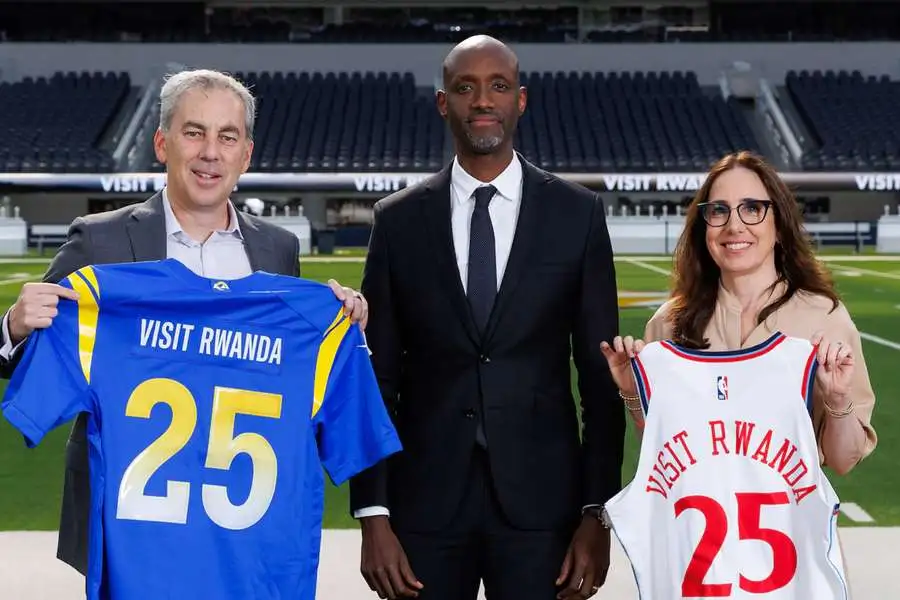Visit Rwanda's Clippers Deal: Strategic Move Amid US-Africa Tensions
Rwanda's partnership with the LA Clippers emerges amid complex diplomatic tensions with the United States and Western powers. This strategic move, following previous sports marketing deals, raises important questions about resource allocation and international relations in Africa.

Rwanda's partnership with LA Clippers signals complex diplomatic maneuvers in US-Africa relations
The Politics Behind Rwanda's Latest Sports Marketing Deal
In what appears to be a calculated diplomatic maneuver, Rwanda's controversial partnership with the Los Angeles Clippers has raised eyebrows across the international community. This development comes at a time of heightened tensions between Kigali and Western powers, particularly the United States, revealing the complex interplay of sports, politics, and international relations.
Diplomatic Context and Rising Tensions
The partnership emerges against a backdrop of strained relations between Rwanda and the Trump administration. President Paul Kagame's decision to skip the 80th UN General Assembly in New York, where the U.S. had attempted to broker a peace accord between Rwanda and the Democratic Republic of Congo, marked a significant diplomatic rebuff. This calculated absence resulted in Rwanda's reduced prominence at the session, with its address relegated to the final moments.
Western Powers' United Front
Further complicating matters, France's alignment with American positions through President Emmanuel Macron's public statements supporting Congolese sovereignty has created additional pressure on Kigali. This Franco-American convergence represents a concerning development for Rwanda's international standing.
Human Trafficking Allegations and Economic Implications
The U.S. administration's accusations of Rwanda's involvement in human trafficking, amplified by various media outlets including Xafrica Media Group, have cast a shadow over the country's carefully cultivated image of stability. These allegations, whether substantiated or not, threaten to undermine Rwanda's economic initiatives and international partnerships.
Strategic Response Through Sports Marketing
The choice to partner with the Los Angeles Clippers, owned by a prominent critic of former President Trump, appears to be a calculated response to these diplomatic pressures. While Rwandan officials maintain silence on any political motivations, social media commentary has highlighted the apparent irony of this arrangement. As noted in this representative tweet: https://x.com/BenBryant_M/status/1973418488950612097
Pattern of Sports Diplomacy
This latest partnership follows Rwanda's established pattern of leveraging high-profile sports associations, including previous deals with Arsenal and Paris Saint-Germain. However, these arrangements raise important questions about the allocation of resources in a developing nation and the true beneficiaries of such high-cost marketing initiatives.
Regional Security Concerns
The timing of this sports marketing deal coincides with ongoing regional security challenges, particularly in eastern Congo. Recent reports of M23 rebel activities in the DRC highlight the complex regional dynamics at play, raising questions about priorities and resource allocation.
Economic Considerations and Sovereignty
While Rwanda positions this partnership as a tourism promotion strategy, careful analysis suggests broader implications for regional economic dynamics and national sovereignty. The substantial financial commitment required for such international sports partnerships warrants scrutiny, particularly in the context of regional development needs and economic priorities.
International Community Response
The international community's reaction to this partnership reflects broader concerns about the intersection of sports, politics, and development in Africa. While some view it as a legitimate marketing strategy, others question the wisdom of such investments given pressing regional challenges and development priorities.
Future Implications
This latest move in Rwanda's international positioning strategy may have far-reaching consequences for regional diplomacy and economic relations. Whether it will achieve its intended effects in countering Western criticism while promoting tourism remains to be seen, but it certainly demonstrates the complex interplay between sports marketing, international relations, and regional politics in modern Africa.
Letsile Tebogo
Lawyer and columnist, expert in traditional values and economic policy.
